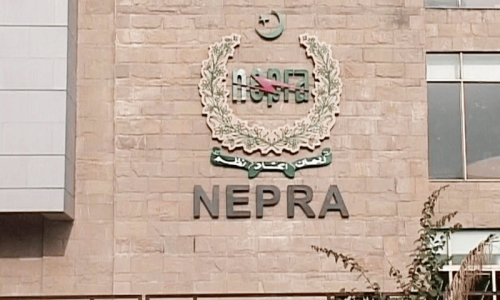LAHORE, Sept 12: The latest report released by Mahbubul Haq Centre, ‘Human Development in South Asia: Water for human development’ has identified inefficiency in water use as the greatest challenge to Pakistan’s water future.
The report, partially launched here on Thursday, points out that Pakistan possesses substantial water resources; it receives adequate rainfall, has extensive groundwater resources and significant glacial reserves to supply water year around. Water scarcity is thus by and large due to shortcomings in the management of water resources.
According to the report, agriculture, which is the largest user of water in Pakistan, operates with low efficiency and productivity. The revenues generated by per unit of water are significantly lower compared to neighbouring India and Bangladesh.
The report points out that poor irrigation techniques, inadequate lining of water channels and canals, intensification of agriculture especially cropping of water intensive crops, low levels of water recharge, excessive reliance on ground water and limited water recycling technologies being employed are some of the important factors contributing towards the inefficient use of water in irrigation.
For example, the report says in Pakistan irrigation techniques are largely primitive. Surface irrigation, with water efficiency averaging only around 45-60 per cent is the only form of irrigation practiced. In comparison, other developing countries like Brazil have adopted improved irrigation practices that save water by reducing conveyance losses and provide more control in the application of water.
The report cites dwindling groundwater resources as an indicator of inefficient water use. The country has witnessed increased dependence on groundwater. Around 45 per cent of the agricultural area is being irrigated by groundwater. With extraction rates higher than the recharge rates, sustainability of this resource begs consideration.
The report argues that in absence of any formal binding regulation on water use there is hardly any incentive for individual users to curtail demand, leading to rapid depletion of this shared water resource. The report goes on to say that since the rights to use groundwater are indirectly linked to land rights, private land owners get absolute authority to ground water beneath their land, and they extract as much as they want without considering its impact on adjacent land owners.
The government’s water pricing mechanism is also not conducive to inculcate efficiency in water use. The report highlights the fact that in Pakistan water is charged on the basis of area or crop based flat rates, thereby de-linking water charges and the quantity used. Such pricing methodologies do not encourage efficiency in water use, as neither of the two relates to actual water usage. Moreover, the charges that are imposed are so low that they fail to recover operation and maintenance costs of canals. The result over the long run is one that portrays continued neglect of water courses and canals, reducing water efficiency further.
The thrust of policy makers and government so far has been on the supply side approach by focusing on infrastructure development. However, as water scarcity increases, efforts should be made on the demand front especially in improving water productivity.
The report suggests that measures to improve water productivity at the farm level would include; using improved and sophisticated irrigation techniques like drip irrigation systems, adopting water harvesting by storing rainwater in tanks, ponds and check dams, and realigning cropping pattern according to the availability of water.
The report also proposes that the government should seriously consider raising water charges and align them with quantity used as against flat rate. Higher water prices would motivate farmers to plant water efficient crop. Increasing the prices paid by consumers would reduce the demand for water, avoid wastage and hence mitigate water shortages.










































